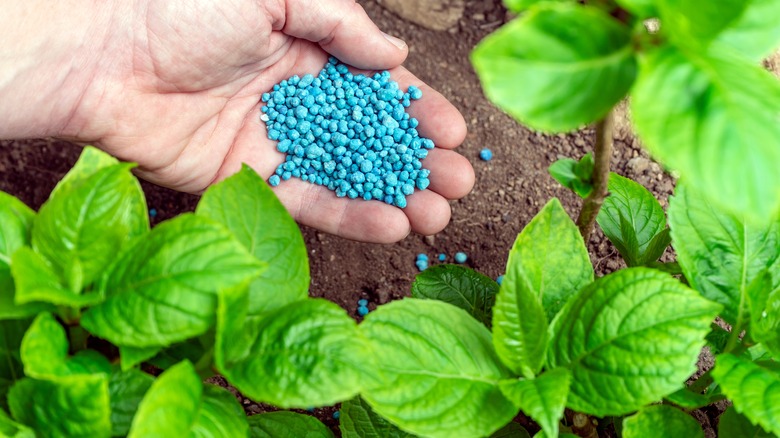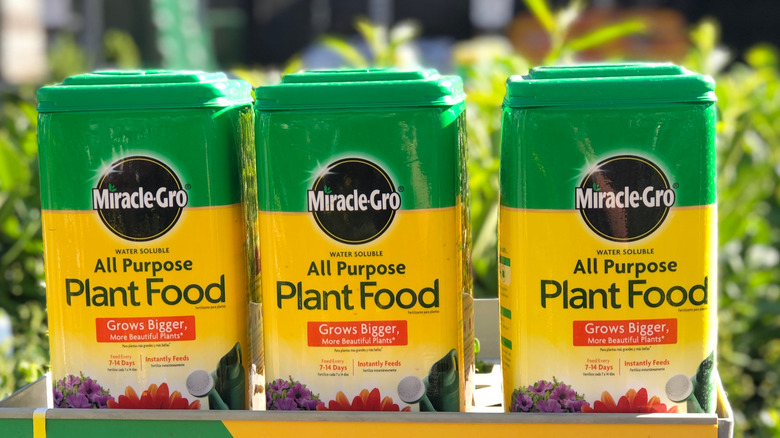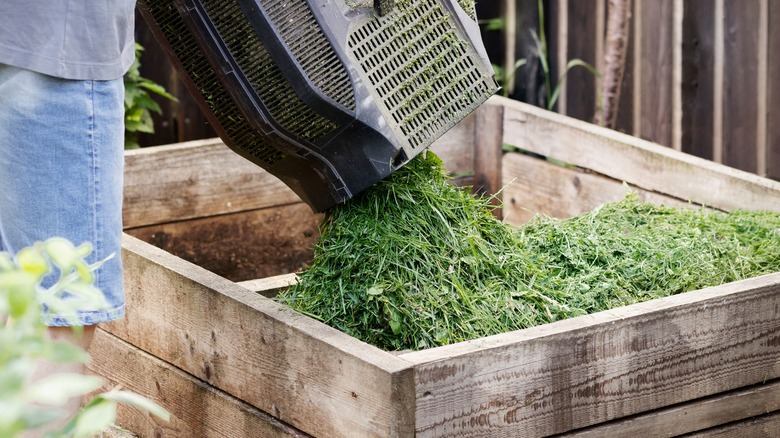Why You Should Reconsider Using Miracle-Gro In Your Garden
Gardening, while good for your health in many ways, can also be a frustrating experience. This is especially true when you put months of effort into weeding and watering only to end up with stunted plants and sad vegetables. Poor plant growth can be caused by a number of different factors but one common reason is a lack of essential nutrients, like nitrogen, in the soil. To solve this problem, many gardeners turn to fertilizers but recently synthetic fertilizers like Miracle-Gro have come under fire on social media with people claiming that they are actually harmful. And, as it turns out, they are right. Research has shown that there are plenty of reasons why you should reconsider using Miracle-Gro or other similar products in your yard and garden.
According to the University of Minnesota Extension, synthetic fertilizers contain a nitrogen-based compound called urea which negatively impacts the growth and reproduction of earthworms. But, even if you are a worm-hater, this doesn't mean that you should go ahead and use Miracle-Gro because synthetic fertilizers can also harm your garden in other ways.
How synthetic fertilizer damages your soil and the planet
Adding any fertilizer that contains synthetic versions of macronutrients like nitrogen will damage the bacterial makeup of your soil. The reason for this, as explained by an article published in Agrochemicals Detection, Treatment and Remediation, is that providing plants with easily accessible synthetic nitrogen reduces the need for microbes that would normally break down organic matter to create nitrogen and, instead, attracts more microbes that feed on nitrogen. This means that your soil's nutrient cycle will be interrupted and your plants will no longer have access to as many naturally-produced nutrients.
In an interview with the Yale Environment 360, U.S. Department of Agriculture researcher Rick Haney described the situation as a cycle where we are "essentially destroying the functionality of soil, so that you have to feed it more and more synthetic fertilizers just to keep growing [a] crop." This need for synthetic fertilizer can has been likened to a type of addiction where plants become so reliant on the chemical fertilizer that they are unable to thrive without it. Unfortunately, on an industrial scale, using more and more synthetic nitrogen-based fertilizer to keep up with "addicted" crops is disastrous for the environment and is the main cause of dead zones and toxic algae blooms in our oceans.
What can you do instead?
The solution to this problem is to fertilize your garden with natural organic materials that will attract beneficial microbes and increase the biodiversity and overall health of your soil. This process will take longer and you won't see quick results like what often happens with Miracle-Gro and similar products; however, it is much better for your soil quality in the long-run. Some examples of organic matter that are good for the garden include compost, manure, blood meal, seaweed, and bone meal. You can also even save leftover grass clippings (which are high in nitrogen) and add them to your garden by using them as a mulch or tilling them into the soil in the spring or fall. It's also a good idea to look into crop rotation and growing nitrogen-fixing plants.
While it is possible to purchase commercially sold natural fertilizers from the garden center, you will still have to be careful if you choose to go this route and make sure to only purchase mixtures that don't contain biosolids. This is especially true if you plan to use the fertilizer in your vegetable garden because a study by a Michigan-based environmental nonprofit found that most of the natural fertilizers they tested contained more than the accepted limit of "forever chemicals" due to the addition of biosolids that contained PFAS, per the Detroit Free Press.


